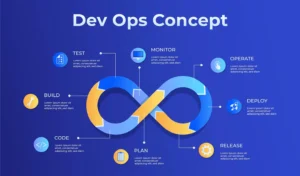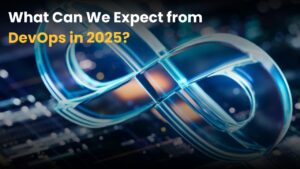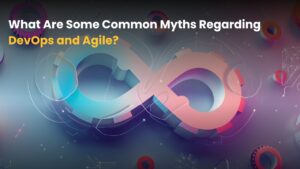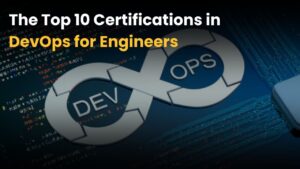In an era of rapid digital transformation, the role of the DevOps engineer has evolved from a niche position to one of the most critical and in-demand roles in tech. As businesses increasingly implement agile techniques and continuous delivery approaches, the connection between development and operations must be robust, efficient, and secure. DevOps engineers occupy this crucial space, ensuring seamless collaboration, deployment, and reliability of software products.
With 2025 ushering in new tools, cloud-native architectures, and AI-powered automation, aspiring DevOps engineers must stay ahead of the curve. This article explores the key skills, technologies, certifications, and career strategies needed to become a DevOps engineer in 2025.
1. Understanding the Role of a DevOps Engineer
With the goal of reducing the software development life cycle (SDLC) and consistently producing high-quality software, a DevOps engineer works at the nexus of development (Dev) and IT operations (Ops). The role requires a deep understanding of automation, CI/CD pipelines, infrastructure as code (IaC), system administration, and monitoring, along with a collaborative mindset.
Core Responsibilities:
- Automating software builds, tests, and deployments.
- Managing infrastructure using code.
- Implementing and maintaining CI/CD pipelines.
- Monitoring application and infrastructure performance.
- Enhancing system reliability and scalability.
- Ensuring security and compliance in the delivery process.
2. Essential Technical Skills in 2025
To thrive as a DevOps engineer in 2025, mastering both foundational and emerging technical skills is vital.
a. Programming and Scripting
Knowledge of scripting languages like Bash, Python, or Go is essential for automating tasks. Python’s extensive library ecosystem and ease of reading make it a popular choice.
b. CI/CD Tools
One of the fundamental DevOps strategies is Continuous Integration and Continuous Delivery (CI/CD). Among the tools to master are
- Jenkins
- GitHub Actions
- GitLab CI
- CircleCI
- TeamCity
c. Version Control
Proficiency in Git is non-negotiable. Understanding GitOps practices, where infrastructure and application configurations are stored in Git repositories, is becoming increasingly important.
d. Containerization and Orchestration
Containers are a staple of modern DevOps workflows.
- Docker for containerizing applications.
- Kubernetes for container orchestration.
Knowledge of Helm (Kubernetes package manager) and Kustomize (for Kubernetes configuration management) is also valuable.
e. Infrastructure as Code (IaC)
Teams can use IaC technologies to code-manage infrastructure.
- Terraform (widely used, cloud-agnostic)
- Pulumi (uses real programming languages)
- AWS CloudFormation (for AWS environments)
- Understanding the immutable infrastructure concept is critical.
f. Cloud Platforms
Most deployments today are cloud-native. It’s crucial to be familiar with at least one significant cloud provider:
- Amazon Web Services (AWS)
- Microsoft Azure
- Google Cloud Platform (GCP)
- Bonus: Learn multi-cloud and hybrid cloud deployment strategies.
g. Monitoring and Observability
Being able to detect and resolve issues proactively is key.
- Prometheus + Grafana (for metrics and visualization)
- Kibana, Logstash, and Elasticsearch (ELK) Stack for logging
- Datadog, New Relic, and Dynatrace are tools for full-stack visible data.
To become an expert in DevOps, check DevOps Training in Pune Course.
3. Embracing DevSecOps
Nowadays, security is not a post-development activity. The concept known as DevSecOps requires DevOps engineers to include security in each stage of the pipeline.
Key Practices:
- Static and dynamic application security testing (SAST/DAST)
- Container scanning (e.g., with Trivy or Aqua Security)
- Secret management (e.g., HashiCorp Vault)
- Security policy enforcement using tools like OPA (Open Policy Agent)
Security-by-design is not an optional feature; it is a basic necessity in 2025.
4. Soft Skills and Collaboration
DevOps is more than just tools. It’s a culture that promotes collaboration, transparency, and shared responsibility.
Must-Have Soft Skills:
- Communication: Working with developers, QA, security, and management teams.
- Problem-solving: Diagnosing and resolving complex deployment issues.
- Adaptability: Keeping pace with evolving tools and practices.
- Empathy: Understanding the challenges faced by different teams and finding common ground.
Understanding Agile, Scrum, or Kanban methodologies will help in cross-functional team collaboration.
5. Certifications to Boost Credibility
Certifications attest to your proficiency and commitment, even if experience and completed projects frequently speak louder.
Top Certifications in 2025:
- Google Professional DevOps Engineer
- Microsoft Certified: DevOps Engineer Expert
- AWS Certified DevOps Engineer-Professional
- Certified Kubernetes Administrator (CKA)
- HashiCorp Certified: Terraform Associate
- Docker Certified Associate
- DevOps Institute Certifications (e.g., DevOps Foundation, DevSecOps Practitioner)
Choose certifications aligned with the platforms and tools you aim to work with.
6. Building Real-World Experience
Certifications are great, but hands-on experience is paramount. Consider:
- Contributing to open-source projects.
- Build and deploy personal applications using CI/CD.
- Creating infrastructure using Terraform and deploying to AWS or GCP.
- Simulating production-grade Kubernetes clusters using tools like kind or minikube.
- GitHub is your portfolio. Keep your projects well-documented and open-source when possible.
7. Keeping Up with Trends
The field of DevOps is always changing. These patterns are influencing the future in 2025:
a. AI and ML in DevOps
AI-driven tools are optimizing monitoring, anomaly detection, and even pipeline automation. Look into tools like Harness, Firefly, and Unomaly.
b. Platform Engineering
Organizations are investing in internal developer platforms (IDPs) to streamline the developer experience. DevOps engineers are becoming platform engineers, focusing on enabling self-service for developers.
c. GitOps
Using Git as the single source of truth, GitOps streamlines the deployment of applications and infrastructure. Tools to explore:
- ArgoCD
- Flux
d. Serverless and Edge Computing
Knowledge of serverless platforms (like AWS Lambda) and edge computing is becoming increasingly relevant, especially for latency-sensitive applications.
8. Career Pathways and Opportunities
DevOps engineers have diverse career progression options:
- Senior DevOps Engineer
- Site Reliability Engineer (SRE)
- Platform Engineer
- Cloud Engineer
- DevSecOps Specialist
- Solutions Architect
Salaries vary by region and experience, but in 2025, the global average for experienced DevOps engineers exceeds $120,000 annually, with higher figures in the U.S., Europe, and Australia.
Final Thoughts
Becoming a DevOps engineer in 2025 is an exciting and rewarding journey that blends technical prowess with a collaborative mindset. It’s not just about technologies—it’s about fostering a culture of agility, resilience, and invention. To succeed, build a solid foundation in programming, cloud, automation, and security. Stay current with trends, continuously upskill, and immerse yourself in practical experience. Most importantly, embrace the DevOps philosophy — breaking silos, fostering collaboration, and delivering value faster and more securely.
The future of DevOps is bright, and with the right mindset and skills, you can be at the forefront of this transformative movement.
